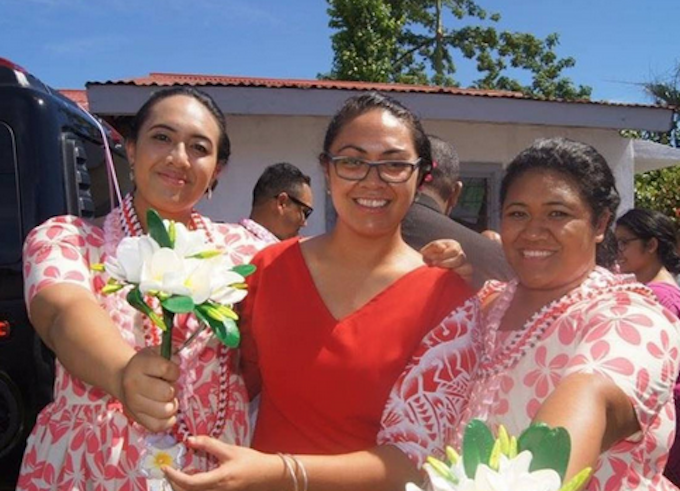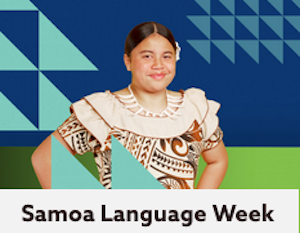
COMMENT: By Vaimoana Tapalea
In Samoan Language Week, The New Zealand Herald’s Vaimoana Tapaleao welcomes the revival of all things fa’asamoa.
Anyone with an ethnic name will tell you it can be anything from a conversation starter to a lesson on pronunciation, or just a struggle.
For me, it’s a story that belongs to my aiga (family) – one of migration, cultural differences and new beginnings.
Named after my dad’s only sister, aunty Moana got her name from my great uncle Tapaleao Moega Anisi — the first person on that side of the aiga to arrive in New Zealand in the 1950s.
 He left Samoa on the MV Tofua bound for Fiji; before getting on a flight headed to Whenuapai in Auckland.
He left Samoa on the MV Tofua bound for Fiji; before getting on a flight headed to Whenuapai in Auckland.
When he arrived, he found everything to be different. The palm trees, humidity and the scorching sun he was so familiar with were nowhere to be seen.
It’s this part of the story I tend to explain by putting both hands out, palms facing up like some kind of human balance scale — one side being Samoa and the other Aotearoa.
“Everything and everyone he knew and loved was now va i moana — separated by the sea.”
Gagana Samoa or fa’asamoa has always been an integral part of my life; not just in my name.
One of the earliest memories I have is of our grandpa Paleao teaching me and a few cousins the Lord’s prayer in Samoan, as we sat cross-legged on the sitting room floor.
I could never properly say the word “fa’aosoosoga” — temptation.
My parents only spoke to me in Samoan as a young child, so when I started primary school, the only language this New Zealand-born kid knew was gagana Samoa.
For some reason it was at times seen as embarrassing if your mum or dad rocked up to school speaking to you in Samoan, or any other language for that matter that wasn’t English.
I had friends who would anglify their very Samoan name to fit in or to make it easier for the teacher to pronounce.
That shame, for want of a better word, has resulted in the now adults who are unable to hold a simple conversation in their mother tongue.
The bright side is that there has been a resurgence for all things fa’asamoa among Samoans growing up away from the islands.
There are language classes that start from the very basic “Talofa” to the more advanced lessons teaching the intricate dialect used by matai (chiefs).
That love for Samoana also extends to a heightened interest in learning cultural siva (dance), getting tatau (traditional tattoos) or creating tusi (books), poetry, pese (song) and even rap in Samoan.
Even the palagi-est of palagi is likely to know what “uso” – the Samoan word for brother – means now; as it’s widely used on social media and on the sports field.
In my own life, speaking Samoan fluently was just a given. Most of my cousins speak fluently and so too do the tupulaga (youth) at church.
However, the value of being able to speak Samoan was only shown to me when I started working as a reporter and realised I had a special way of connecting with people on a different level.
It is one of my greatest assets to have as a journalist; especially when speaking with older Samoans, who breathe a sigh of relief when they hear the familiar words of home.
In some cases, their eyes fill with tears when they realise they can talk to me.
There have also been the low-key jabs, of course, like when a woman I interviewed jokingly mixed up the word tusitala (journalist) with faitatala — gossip.
Jokes aside, fa’asamoa is not just about one’s linguistic abilities.
Every child is taught the old proverb: “E iloa le Samoa i lana tu, tautala ma lana savali.” You can tell a Samoan by the way they stand, speak and walk.
It’s a reminder that fa’asamoa and being Samoan is about service, action, respect and much more than words.
Vaimoana Tapaleao is a journalist with The New Zealand Herald. This Samoan Language Week article is republished with permission.











































